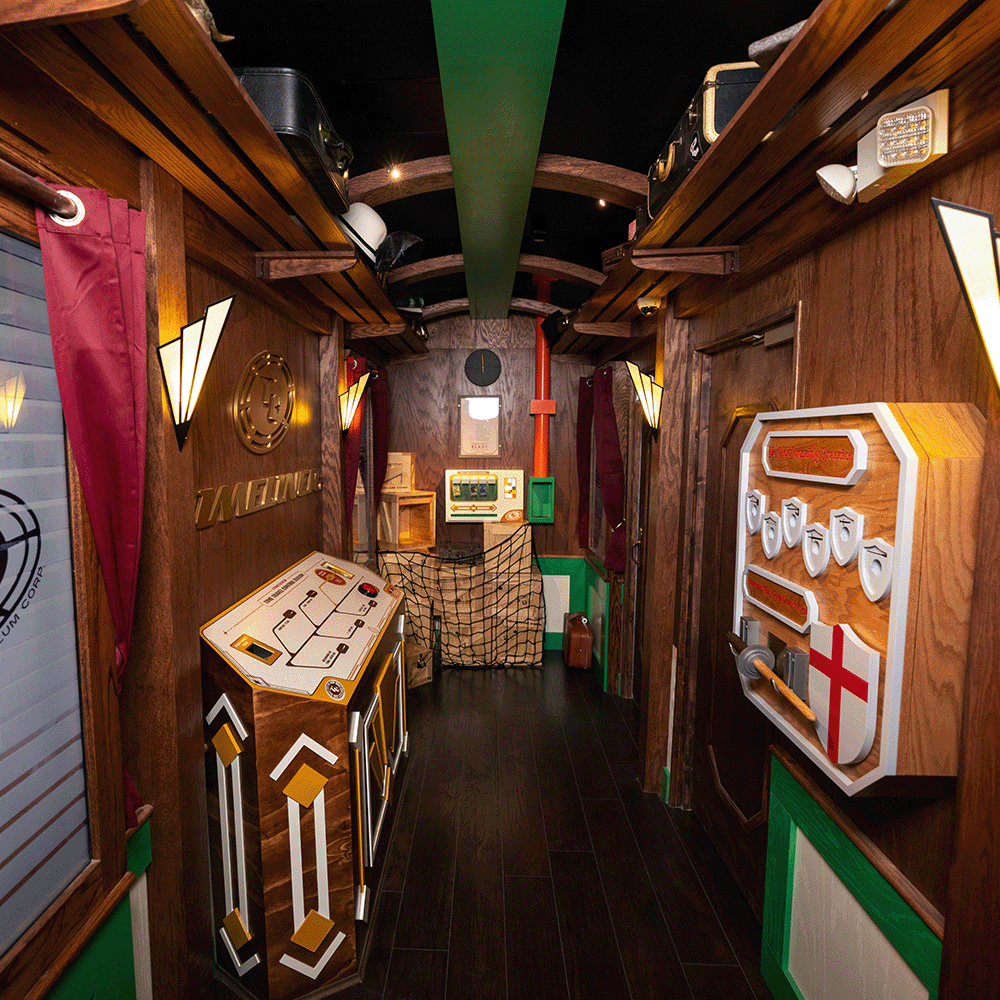Delighting Escape Room in Minneapolis Mall of America-- Get Now
Delighting Escape Room in Minneapolis Mall of America-- Get Now
Blog Article
Team Techniques: Exactly How to Team up Effectively in a Retreat Space
Navigating the intricacies of a retreat space requires even more than plain excitement; it needs a well-coordinated strategy grounded in clear interaction, critical function tasks, and skilled time administration. Teams need to proactively pay attention to each participant's insights, appoint functions that straighten with specific toughness, and preserve normal check-ins to ensure emphasis and stop redundancy. By promoting a setting that values cohesion and flexibility, teams can substantially enhance their effectiveness and success rates. The nuances of these techniques can transform the experience, yet exactly how specifically can they be implemented to take full advantage of the potential for success?
Establish Clear Interaction
To promote clear communication, it is necessary to assign a central point of get in touch with for information circulation. This duty includes summing up findings and suggested methods to ensure every person remains on the exact same page. Additionally, embracing a systematic approach to conversations can prevent chaotic exchanges. Short, concentrated updates from each team member can keep the group notified without frustrating them with information - best escape room.

Assign Roles Purposefully
While clear communication establishes the foundation for efficient synergy, assigning functions tactically ensures that each employee's staminas are used properly. In an escape area situation, the time-sensitive and complex nature of difficulties necessitates a well-organized method to job delegation. By determining and leveraging individual competencies, groups can enhance their analytic capacities and boost general performance.
Somebody with an eager eye for information may stand out in locating surprise things, while a sensible thinker can be much better matched to addressing problems. This duty typically needs strong organizational and interpersonal skills.
Second, guarantee that roles are flexible and adaptable. As brand-new obstacles arise, the team has to have the ability to pivot, reapportioning jobs as needed. This flexibility aids preserve momentum and avoids bottlenecks that might occur because of rigid function assignments.
Eventually, a strategic approach to duty job not only takes full advantage of the toughness of each team member however also promotes a reference cohesive setting, driving the team in the direction of an effective getaway.
Utilize Diverse Skills
Recognizing and utilizing the diverse abilities within your team can significantly raise your performance in a retreat space. Each employee brings one-of-a-kind staminas to the table, and efficiently leveraging these capacities can quicken analytic and improve total efficiency. A team participant with strong analytical abilities may excel at understanding complex codes or patterns, while one more with eager observational capabilities might quickly find covert hints that others could forget.
Motivate group participants to articulate their understandings and concepts promptly, making certain that all possible options are taken into consideration. Additionally, designating jobs that line up with each participant's toughness can avoid bottlenecks and ensure that development is constant.
In addition, variety in abilities typically translates to diversity in assuming styles, which is vital in a retreat space setting. While some obstacles may need rational reasoning and precision, others may profit from creative and association of ideas. By acknowledging and leveraging this diversity, groups can deal with a broader range of difficulties better, thereby enhancing their chances of an effective getaway.
Manage Time Efficiently
Identify noticeable puzzles and divide jobs based on group participants' staminas, guaranteeing that nobody is still. This method can help maintain the team discover this concentrated and protect against time from sliding away unnoticed.
In addition, stay clear of one-track mind. If a challenge is taking too long, revolve team members or go on to an additional difficulty, returning later on with fresh viewpoints. Communication is vital-- keep everybody updated on fixed puzzles and remaining jobs to avoid redundant initiatives.
Lastly, utilize any kind of hints or ideas sparingly but purposefully - best escape room. Understanding when to request for assistance can save important time. By sticking to these time management concepts, groups can substantially enhance their chances of a successful and delightful escape room experience
Debrief and Reflect
Reflection is an important element of group development and improvement in the context of getaway areas. As soon as the challenge is completed, whether successfully or not, it is critical for the team to take part in a structured debriefing session. This process enables employee to analyze their efficiency, identify strengths, and identify locations for enhancement.
Begin the debrief by discussing what went well. Highlight certain circumstances of efficient interaction, analytic, and collaboration. Recognizing these positive actions enhances them and encourages their repetition in future difficulties.
Review minutes of confusion, miscommunication, or ineffective strategies. Encourage an open and constructive discussion where team participants can share their viewpoints without anxiety of objection.
Conclusion
In verdict, effective collaboration in an escape space is predicated upon clear communication, critical function tasks, the effective application more of diverse skills, and skilled time administration. By producing a cohesive and flexible team atmosphere, the probability of efficiently resolving problems and attaining the objective of getting away the space is dramatically enhanced.
Report this page